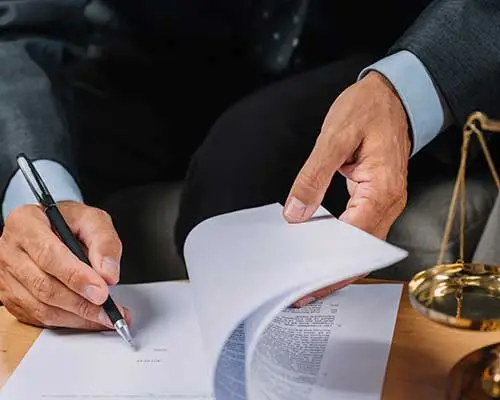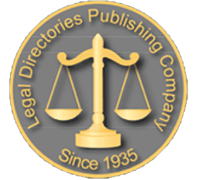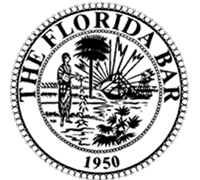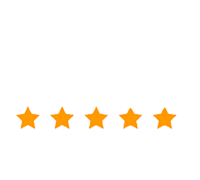How to Choose the Best Corporate Fraud Law Firm
You wouldn’t ask a general family doctor to perform complex heart surgery. The same principle applies to the law. Corporate fraud is a highly specialized field with intricate regulations, powerful government agencies, and potentially devastating consequences. A general practice attorney simply won’t have the specific experience required to build a strong defense against these serious allegations. Your search for the best corporate fraud law firm should focus exclusively on specialists—teams that live and breathe business litigation and have a proven track record in cases just like yours. This guide will help you identify the key markers of a true specialist and avoid the pitfalls of choosing a firm that isn’t equipped for the fight.
Key Takeaways
- Vet for Relevant Experience, Not Just Reputation: Look past a firm’s size and focus on their specific, proven success in corporate fraud cases that mirror your situation and industry.
- Build Your Defense Before You Need It: Implement strong internal controls, conduct regular risk assessments, and train your team to create a resilient business culture that actively prevents fraud.
- Establish Clear Communication from Day One: A strong attorney-client relationship is built on shared expectations. Be direct about your communication needs and ensure you understand the fee structure and case timeline from the start.
What Should You Look for in a Corporate Fraud Law Firm?
When you’re dealing with corporate fraud, the stakes are incredibly high. Choosing the right legal team is one of the most important decisions you’ll make. It’s not just about finding a lawyer; it’s about finding a strategic partner who can guide you through a complex and stressful process. The right firm will not only have deep legal knowledge but will also understand your business and your goals. As you evaluate your options, focus on a few key areas that separate an adequate firm from a great one. Look for a team that has a history of positive outcomes, understands the nuances of your industry, and communicates with you clearly and consistently. This choice will shape your entire experience and, ultimately, the resolution of your case.
A Strong Track Record of Success
When you’re vetting a law firm, their past performance is a powerful indicator of their capabilities. You want a team that can point to a history of successfully handling complex cases similar to yours. Don’t be afraid to ask about their experience with corporate fraud litigation and the outcomes they’ve achieved for past clients. A firm with a proven track record demonstrates that its attorneys have the skills to build a strong case, whether that means negotiating a favorable settlement or fighting for you in court. Reviewing the profiles of the firm’s attorneys can give you a clear picture of their background, expertise, and the types of cases they specialize in.
Experience with Cross-Border Cases
In today’s economy, business transactions frequently cross state and even international lines. Corporate fraud is no different. A case that seems based in Florida can quickly involve parties, assets, or regulations from other jurisdictions. It’s crucial to work with a law firm that has experience managing these multi-jurisdictional complexities. An attorney who understands the intricacies of interstate commerce and potential conflicts of law will be better equipped to protect your interests. This experience ensures they won’t be caught off guard by challenges that arise from outside the state.
Familiarity with Government Agencies
Many corporate fraud cases attract the attention of government bodies like the Department of Justice (DOJ) or the Securities and Exchange Commission (SEC). A law firm with attorneys who have prior experience working within these agencies can offer a significant advantage. These lawyers have firsthand knowledge of how government investigations are conducted, what prosecutors look for, and the internal procedures that guide these agencies. This insider perspective is invaluable for developing an effective defense strategy and anticipating the government’s next move. Their familiarity with the system can help you prepare for inquiries and respond effectively.
Specific Industry Knowledge
Every industry has its own unique regulations, business practices, and common challenges. A generic legal approach is rarely effective. Look for a firm that has specific, hands-on experience in your sector, whether it’s real estate, finance, healthcare, or technology. Attorneys who understand your industry’s landscape can provide more tailored and practical advice. They can identify potential issues that a generalist might miss and craft legal strategies that align with your business realities. This specialized focus is a core component of effective business litigation and can make a major difference in the outcome of your case.
A Focus on Client Support
Facing a corporate fraud allegation or investigation is incredibly demanding. The last thing you need is a legal team that is unresponsive or unclear in its communications. The best law firms prioritize client support, working diligently to handle the legal complexities so you can focus on running your business. Look for a firm that is committed to keeping you informed, answering your questions, and making you feel like a valued partner. A strong client-attorney relationship is built on trust and open communication, ensuring you have the support you need every step of the way.
What Services Do Corporate Fraud Law Firms Offer?
When you’re facing allegations of corporate fraud or suspect it’s happening within your company, the path forward can seem incredibly complex. Corporate fraud law firms offer a range of specialized services designed to address these challenges head-on. They act as your investigators, defenders, and strategists, working to protect your business’s financial health and reputation. From proactive compliance checks to aggressive defense in court, their goal is to provide clarity and a solid plan of action.
Internal Investigations
Before you can address a problem, you need to understand its full scope. When employee misconduct or fraud is suspected, a law firm can conduct a thorough and confidential internal investigation. Bringing in outside counsel ensures the process is objective and protected by attorney-client privilege. These investigations help businesses get to the bottom of what happened, who was involved, and how to contain the damage. A skilled business law attorney can gather evidence, interview employees, and provide a clear report of their findings, giving you the information you need to make informed decisions and prevent future issues.
Regulatory Compliance
The best way to handle a legal battle is to avoid it altogether. Corporate fraud law firms help businesses understand and follow the complex web of state and federal regulations. Staying compliant isn’t just about checking boxes; it’s about building a strong, ethical foundation for your company. An attorney can help you develop and implement compliance programs, conduct risk assessments, and train your team on best practices. This proactive approach helps mitigate legal risks and demonstrates a commitment to lawful operations, which can be invaluable if your business ever comes under scrutiny.
Criminal Defense
If your business or one of its executives is facing criminal charges, you need an experienced legal team immediately. Corporate fraud cases often involve powerful government agencies like the Department of Justice (DOJ) or the Securities and Exchange Commission (SEC). A law firm specializing in this area will build a robust defense strategy tailored to your specific situation. They handle everything from responding to subpoenas and search warrants to negotiating with prosecutors and representing you in court. Their experience in defending clients against these agencies is critical for protecting your rights and securing the best possible outcome.
Asset Recovery and Protection
For businesses that have been victims of fraud, the financial losses can be devastating. A key service law firms offer is asset recovery, which focuses on getting your money back. Even if criminal charges are filed, you can pursue a civil lawsuit to recover stolen funds and compensate for damages. Attorneys who specialize in this area are skilled at tracing and freezing assets, whether they’re held in a local bank or hidden offshore. They can file lawsuits to reclaim what was lost, helping you recover from the financial impact of the fraud and get your business back on solid ground.
Digital Forensics
In most modern fraud cases, the evidence is hidden in plain sight—on computers, servers, and smartphones. Digital forensics involves the collection, preservation, and analysis of electronic data to uncover proof of fraudulent activity. Many corporate fraud law firms work with digital forensics experts to analyze emails, financial records, and other electronic communications. This technical expertise is often the key to piecing together a complex fraud scheme and building a compelling case. By uncovering the digital trail, your legal team can present concrete evidence to support your position in court or during negotiations.
Finding the Right Type of Firm for You
Choosing a law firm isn’t a one-size-fits-all decision. The right partner for you depends entirely on the specifics of your case—its size, complexity, and geographic scope. Understanding the different types of firms available can help you narrow down your search and find legal representation that truly fits your needs. From sprawling national firms to highly focused local experts, each offers a distinct set of advantages. Let’s walk through the main categories so you can make an informed choice.
Full-Service National Firms
If you’re facing a large-scale investigation that spans multiple states or involves a major corporation, a full-service national firm might be the right fit. These are the big players with extensive resources, large teams of attorneys, and a presence in major cities across the country. They are well-equipped to handle incredibly complex cases and often have departments dedicated to corporate crime and investigations. While they command high fees, their ability to deploy significant resources can be critical in high-stakes litigation. Research from legal directories like Chambers and Partners often highlights these firms for their national reach and deep expertise.
Specialized Boutique Firms
On the other end of the spectrum are specialized boutique firms. Instead of covering dozens of practice areas, these firms concentrate on one or two specific niches, developing a deep well of knowledge in that area. For example, some firms focus exclusively on representing whistleblowers, helping individuals report fraud against the government. If your case involves a very specific type of fraud or a unique industry, a boutique firm can offer a level of focused expertise that larger, more generalized firms may not be able to match. They provide a tailored approach that can be invaluable for clients with unique circumstances.
International Networks
When corporate fraud crosses borders, the legal complexity multiplies. Different countries have their own laws, regulations, and enforcement agencies, and managing a case across jurisdictions requires a specific skill set. If your business operates internationally or the fraud involves foreign entities, you need a firm with proven international capabilities. Many top-tier firms have offices or established networks in Europe, Asia, and other key markets. This global reach is essential for conducting investigations, gathering evidence, and handling the legal intricacies of cross-border cases, ensuring nothing gets lost in translation.
How Legal Counsel P.A. Can Help
For businesses and individuals dealing with corporate fraud within Florida, a dedicated local firm is often the most effective choice. At Legal Counsel P.A., we combine sophisticated legal knowledge with a deep understanding of the Florida business landscape. Our attorneys focus on business and real estate litigation, providing tailored and accessible legal support right here where you operate. We understand the local court systems and state regulations inside and out. If you suspect you’ve been a victim of corporate fraud, the first step is to understand your options. We invite you to contact our team to discuss your situation and learn how we can help protect your interests.
What Are the Most Common Corporate Fraud Cases?
Corporate fraud isn’t a single crime but a wide category of illegal and deceptive practices committed by a business or its employees. Understanding the different types of fraud is the first step toward identifying potential risks within your own company or recognizing when you might need legal guidance. From misleading investors to manipulating financial records, these actions can have devastating consequences. Here are some of the most common forms of corporate fraud that businesses and individuals in Florida may encounter.
Securities and Investment Fraud
At its core, securities fraud is about deceiving investors. This happens when a company provides false information or conveniently leaves out critical facts to manipulate investment decisions. You might have heard of high-profile examples like Ponzi schemes, where money from new investors is used to pay earlier ones, or insider trading, where confidential information is used for personal gain. These actions break the trust between a company and its stakeholders. The U.S. Securities and Exchange Commission has extensive resources for investors to help them spot and avoid fraudulent schemes. If you suspect you’ve been a victim of investment fraud, it’s crucial to act quickly.
Accounting and Financial Fraud
Think of this as “cooking the books.” Accounting fraud involves intentionally manipulating financial statements to make a company appear more profitable than it really is. This can be done by inflating revenue, hiding liabilities, or improperly classifying expenses. The goal is to mislead investors, lenders, and the public about the company’s true financial health. This type of deception can lead to significant financial losses for anyone who relies on those inaccurate reports. Handling these complex situations often requires experienced business litigation attorneys who can unravel the financial webs and protect your interests.
Healthcare Fraud
Healthcare fraud is a particularly serious issue that affects everyone through higher insurance premiums and compromised patient care. It can take many forms, such as a provider billing for services that were never rendered, falsifying a patient’s diagnosis to justify unnecessary tests, or engaging in kickback schemes for referrals. This not only drains billions of dollars from the healthcare system but also puts patients at risk. Given the large healthcare industry in Florida, this type of fraud is a significant concern. Federal agencies are actively working to combat healthcare fraud, but it often takes vigilant individuals to bring these schemes to light.
Digital and Cybersecurity Fraud
As more business is conducted online, the opportunities for digital fraud have multiplied. This broad category includes everything from phishing scams that trick employees into revealing sensitive information to large-scale data breaches and credit card fraud. Cybercriminals are constantly finding new ways to exploit vulnerabilities in a company’s digital infrastructure. For businesses, the consequences can include financial loss, reputational damage, and legal liability. The Federal Trade Commission offers helpful cybersecurity guidance for small businesses to help them protect themselves, their employees, and their customers from the growing threat of online fraud.
Whistleblower Cases
Sometimes, the only people who know about corporate fraud are the ones on the inside. Whistleblower cases arise when an employee reports illegal or unethical practices within their organization. These brave individuals play a critical role in exposing everything from financial misconduct to safety violations. Federal and state laws offer protections to shield whistleblowers from retaliation by their employers. The Whistleblower Protection Program is designed to ensure that employees can report wrongdoing without fear of losing their job or facing harassment. These cases are essential for holding companies accountable and preventing further harm.
How to Choose the Right Fraud Law Firm
Finding the right legal partner when you’re facing corporate fraud allegations can feel overwhelming, but it’s arguably the most important decision you’ll make for your business’s future. The stakes are incredibly high, involving not just significant financial penalties but also your company’s hard-earned reputation and even your personal liberty. The right firm won’t just represent you in court; they’ll act as your strategic guide and steadfast advocate through a complex and often stressful process. To make the best choice, you need to look beyond a fancy website or a long list of services. Focus on the core qualities that truly matter: a team whose experience directly aligns with your specific situation, who communicates with clarity and empathy, and who you feel comfortable trusting with your most sensitive information.
This isn’t a time for a generalist. You need a specialist who understands the nuances of corporate law and has a proven history of success in fraud cases. Taking the time to carefully vet your options isn’t just a preliminary step—it’s the foundation of a strong defense. This guide will walk you through the essential criteria to consider, from evaluating credentials and understanding fee structures to recognizing red flags. By following these steps, you can confidently select a firm that can effectively protect your interests and guide you toward the best possible outcome.
Evaluate Their Credentials and Experience
When you’re looking for a law firm, their track record is everything. You want a team with proven experience in corporate fraud cases similar to yours. Don’t be shy about asking for case studies or examples of their past work. Check their website for attorney bios to review their backgrounds, education, and specific expertise. A firm with a long history of handling complex business litigation will have the depth of knowledge needed to handle your case effectively. Experience isn’t just about years in practice; it’s about relevant, hands-on success in the specific area of law you need.
Understand Their Fee Structure
Legal costs can be a major source of stress, so it’s crucial to have a clear understanding of the firm’s fee structure from the very beginning. Most law firms use hourly rates, flat fees for specific services, or a retainer model. During your initial consultation, ask for a detailed breakdown of all potential costs, including attorney fees, court filing fees, and expert witness expenses. A reputable firm will be transparent about their pricing and provide you with a written fee agreement. This clarity ensures there are no surprises down the road and allows you to budget accordingly for your legal defense.
Assess Their Communication Style
You need a lawyer who not only understands the law but can also explain it to you in a way that makes sense. During your first meeting, pay attention to how they communicate. Do they listen to your concerns? Do they answer your questions directly and without a lot of legal jargon? The right attorney will be a partner you can trust, keeping you informed at every stage of your case. You should feel comfortable reaching out to them and confident that they will be responsive. This relationship is key to feeling supported throughout the legal process.
Check Their Geographic Coverage
Business and real estate laws can vary significantly by state, so it’s often beneficial to work with a firm that has deep roots in your local jurisdiction. A Florida-based law firm will have an intricate understanding of the state’s legal landscape and established relationships within the local court system. If your business operates across state lines or internationally, you should also inquire about the firm’s experience with cross-border cases. For most businesses operating within the state, however, a team of dedicated Florida attorneys provides a distinct advantage in navigating local regulations and legal procedures.
Know the Red Flags to Watch For
Just as important as knowing what to look for is knowing what to avoid. Be cautious of any attorney who guarantees a specific outcome—the legal system is never that predictable. Other red flags include a lack of transparency about fees, poor communication, or a dismissive attitude toward your questions. If a lawyer seems to make things unnecessarily complex or is difficult to get in touch with from the start, it’s a sign that they may not be the right fit. Trust your instincts. You want a legal team that is professional, respectful, and clearly dedicated to your best interests.
How to Build a Strong Legal Defense
When you’re facing allegations of corporate fraud, building a strong defense starts immediately. It’s not about waiting for a trial date; it’s about taking deliberate, strategic steps from day one. A proactive approach can significantly influence the outcome of your case. Working closely with your legal team, you can create a defense strategy grounded in facts, expert analysis, and a clear understanding of the legal landscape. Let’s walk through the essential components of a solid defense.
Manage Your Documentation
Your first and most critical step is to get organized. It’s important to gather and keep copies of any related documents like receipts, contracts, warranties, letters, and emails. These records are the foundation of your defense, providing a factual timeline and context for the events in question. Don’t dismiss anything as irrelevant. A single email or invoice could be the key to clarifying a misunderstanding or disproving an allegation. By compiling this information early, you give your business litigation attorney the raw materials they need to start building your case and protecting your interests.
Understand Investigation Procedures
Corporate fraud investigations are rarely quick. It’s helpful to know that factors influencing the duration often include extensive document reviews and forensic accounting. Understanding this process helps you set realistic expectations for the timeline. These investigations are methodical and detailed, designed to uncover every piece of relevant information. Knowing what to expect allows you and your legal team to prepare for each stage, from initial inquiries to in-depth financial analysis. This preparation ensures you aren’t caught off guard and can respond to requests thoughtfully and strategically.
Coordinate with Expert Witnesses
Some evidence isn’t found in a simple document—it has to be uncovered by a specialist. This is where expert witnesses become invaluable. Experienced law firms often use experts like forensic accountants and investigators to uncover hidden details or interpret complex financial data. These professionals can analyze records, trace transactions, and present their findings in a way that is clear and compelling. Collaborating with the right experts can add a powerful layer of credibility and insight to your defense, helping to explain the full story behind the numbers.
Weigh Settlement vs. Trial
Going to trial isn’t always the best path forward. It’s crucial to weigh the potential outcomes of a settlement against the risks and costs of a trial. Recent trends show that government bodies often favor plea agreements to resolve corporate fraud cases, which is an important factor to consider. A settlement can offer a more predictable and controlled outcome, potentially saving you significant time, stress, and expense. An experienced Florida business attorney will help you evaluate any settlement offers, negotiate terms, and decide on the best course of action for your specific situation.
How to Prevent Corporate Fraud in Your Business
Protecting your business from fraud isn’t just about reacting to problems—it’s about building a resilient company from the ground up. A proactive approach sends a clear message that you value integrity and accountability. While no business is completely immune to risk, putting strong preventative measures in place can significantly reduce your vulnerability and safeguard your assets, reputation, and future.
Think of fraud prevention as a core part of your business strategy. It involves creating a culture of awareness, establishing clear procedures, and consistently checking that your systems are working as they should. By taking these steps, you not only protect your bottom line but also build trust with your employees, customers, and partners. The following strategies are essential for creating a robust defense against corporate fraud.
Implement a Risk Assessment Program
The first step in preventing fraud is understanding where your business is most vulnerable. A risk assessment program helps you identify potential weak spots in your operations. This isn’t a task for just one person; effective fraud risk management involves getting input from different parts of your organization. Talk to people in finance, operations, and management to get a full picture of where risks might lie.
Once you’ve identified potential risks—like unauthorized access to financial accounts or weak vendor approval processes—you can prioritize them and develop a plan to address them. This isn’t a one-and-done activity. As your business grows and changes, your risks will evolve, too. Make risk assessment a regular part of your business planning to stay ahead of potential threats.
Establish Strong Internal Controls
Internal controls are the specific rules and procedures you put in place to protect your company’s assets and ensure your financial records are accurate. A classic example is the separation of duties: the employee who approves invoices should not be the same person who issues payments. This simple check and balance makes it much harder for fraudulent activity to go unnoticed.
Other essential controls include requiring dual signatures for large checks, setting approval hierarchies for expenses, and regularly reconciling your bank accounts. You can also use secure software to manage financial transactions and limit access to sensitive data. These controls aren’t about mistrusting your team; they’re about creating a system that protects everyone by removing opportunities for error or misconduct.
Use Effective Monitoring Systems
Even with the best controls in place, you need a way to monitor activity and spot anything unusual. As fraud schemes become more sophisticated, having a good monitoring system is critical. This can be as simple as a manager carefully reviewing departmental expense reports each month or as advanced as using software that automatically flags suspicious transactions for review.
The goal is to catch irregularities early, before they escalate into significant problems. Consistent monitoring helps you understand your company’s normal patterns, making it easier to identify when something is out of place. If you need help developing policies or procedures for your business, our business law attorneys can provide guidance tailored to your specific needs.
Prioritize Employee Training
Your employees are your first and best line of defense against fraud. A team that is educated about the risks and red flags is an incredible asset. Conduct regular training sessions to teach employees how to recognize common fraud schemes, such as phishing emails, invoice manipulation, or social engineering tactics. Make sure they understand your company’s anti-fraud policies and know exactly what to do if they suspect something is wrong.
It’s also vital to create a safe and confidential process for reporting concerns without fear of retaliation. When employees feel empowered to speak up, you create a culture of transparency and accountability. An informed and vigilant team can stop fraud before it ever takes root.
Conduct Regular Audits
Audits are a powerful tool for verifying that your internal controls are working correctly and that your financial statements are accurate. You can conduct internal audits using your own team or hire an external auditor for an independent review. Both are valuable. Regular audits create a sense of accountability and can uncover issues that daily monitoring might miss.
Without precise records, any investigation can fall apart under legal scrutiny. Audits ensure your documentation is clean and reliable. The frequency of audits will depend on your business’s size and complexity, but making them a consistent practice helps maintain financial integrity and demonstrates a serious commitment to preventing fraud.
What to Expect When Working With Your Attorney
Working with a lawyer on a corporate fraud case can feel overwhelming, but knowing what to expect can make the process much smoother. A good attorney-client relationship is built on clear communication and shared expectations from the very beginning. Your lawyer is your guide through a complex legal landscape, and their job is to simplify things for you, not complicate them. From your first meeting to the final resolution, understanding the key stages will help you feel more in control and confident in your legal strategy.
Think of this process as a partnership. You bring the essential details and goals for your case, and your attorney brings the legal expertise and strategic direction. Together, you’ll work toward the best possible outcome. Let’s walk through what you can anticipate during your initial consultation, how to establish effective communication, what to expect from the case timeline, and how to manage the financial aspects of your legal defense.
Your Initial Consultation
Your first meeting with a potential attorney is more than just a meet-and-greet; it’s a crucial two-way interview. While the lawyer is evaluating the merits of your case, you should be assessing if they are the right fit for you. This is your opportunity to ask important questions about their qualifications, their approach to similar cases, and how they plan to handle your specific situation. Come prepared with a summary of your case and any relevant documents you have. Don’t hesitate to ask about their experience, their communication style, and their initial thoughts on a potential strategy. A productive consultation should leave you with a clear understanding of the attorney’s capabilities and a sense of confidence in their ability to represent you.
Setting Communication Expectations
Clear and consistent communication is the bedrock of a strong attorney-client relationship. While the legal system can be intricate, a good lawyer is there to make the process more understandable for you. During your initial meetings, be upfront about your communication preferences. Do you prefer updates via email or phone calls? How frequently would you like to be informed of progress? It’s also helpful to clarify who your primary point of contact will be—the attorney directly or a paralegal. Establishing these expectations early on prevents misunderstandings and ensures you feel informed and supported throughout your case. The business litigation attorneys at Legal Counsel P.A. prioritize keeping clients in the loop every step of the way.
Understanding the Case Timeline
Corporate fraud cases rarely follow a predictable schedule. The timeline can be influenced by a wide range of factors, and it’s important to be patient. The complexity of the fraud, the volume of evidence, and the number of parties involved all play a significant role. The discovery phase alone can be lengthy, often involving extensive document reviews and forensic accounting to uncover all the facts. Other elements, like the court’s calendar and the other party’s willingness to cooperate, can also cause delays. Your attorney will provide you with a realistic (but flexible) timeline and keep you updated as the case progresses through different stages, from investigation to potential settlement or trial.
Managing Legal Costs
The cost of legal representation is a valid concern for any individual or business. Before you commit, make sure you have a transparent conversation about the firm’s fee structure. Most attorneys work on an hourly basis, but some may offer flat fees for specific services. You will likely be asked for a retainer, which is an upfront payment that the firm will draw from as they work on your case. It’s essential to get a written fee agreement that clearly outlines all costs. Don’t be afraid to ask for detailed, regular invoices so you can track expenses. Choosing an attorney with deep experience in Florida business law can also be a cost-effective decision, as their efficiency and knowledge can save you time and money in the long run.
Related Articles
- Business Law Lawyers: Top Guide for Entrepreneurs 2024
- How a Business Litigation Lawyer Can Help You
- Attorney for Business Litigation: An Essential Guide
- Corporate Formation Lawyers – Legal Counsel P.A.
- Corporations – Legal Counsel P.A.
Frequently Asked Questions
When is the right time to contact a lawyer about potential fraud? The best time to contact an attorney is the moment you suspect something is wrong. Many people hesitate, worrying it might be too early or that they don’t have enough proof, but waiting can be a costly mistake. Early legal guidance helps you preserve evidence, avoid missteps, and understand your options before the situation escalates. Whether you’ve been accused of wrongdoing or believe your business is a victim, getting professional advice right away is the most effective first step you can take.
My business is small. Are these fraud prevention steps really necessary for me? Absolutely. While it’s easy to think of corporate fraud as a problem for large corporations, small businesses are often more vulnerable because they may have fewer resources and less formal procedures. You don’t need a complex, enterprise-level system. Implementing basic controls, like separating financial duties and conducting regular reviews of your accounts, can make a huge difference. These foundational steps protect your hard-earned assets and are crucial for any business, regardless of its size.
What’s the main difference between a civil and a criminal corporate fraud case? Think of it in terms of who is taking action and what the goal is. A criminal case is brought by the government (like the DOJ or a state prosecutor) and aims to punish wrongdoing through fines or jail time. A civil case, on the other hand, is filed by the person or company that was harmed. The goal of a civil lawsuit is not to imprison someone, but to recover the money that was lost and compensate the victim for damages. It’s possible for the same fraudulent act to lead to both types of cases.
Why should we hire an outside law firm for an internal investigation instead of just using our own team? Using an outside law firm for an internal investigation provides two critical advantages: objectivity and legal privilege. An external team can assess the situation without the internal politics or personal relationships that can cloud judgment. More importantly, their work is typically protected by attorney-client privilege, which keeps the investigation’s findings confidential. This protection is essential for controlling information and developing a sound legal strategy without tipping your hand.
What should I bring to my first consultation with a corporate fraud attorney? To make your first meeting as productive as possible, come prepared with a clear summary of the situation. It helps to write down a timeline of events, a list of the key people involved, and any immediate concerns you have. If you have access to them, bring copies of relevant documents like contracts, financial statements, or suspicious emails. Finally, bring a list of your own questions. This preparation helps the attorney quickly understand your case and gives you the clarity you need to decide on your next steps.

















